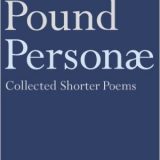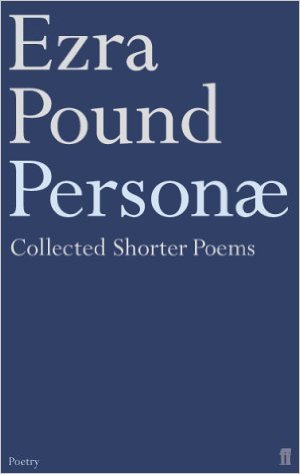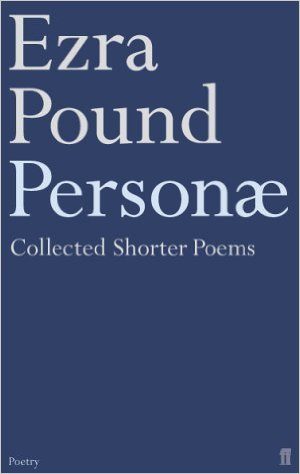Personae: The Shorter Poems of Ezra Pound – 1926
Reviewed by: Michael Sympson Date: 25 October 2001
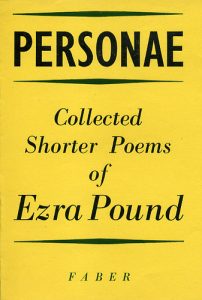
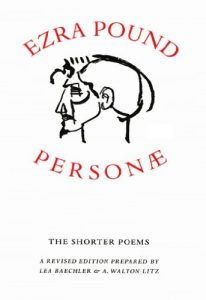
Not quite so superb
It is a sad fact, but all of the greatest poets of the 20th century, perhaps with the exception of Saint-John Perse and William Carlos Williams, felt the inexplicable urge to join the herd and camp out in highly dubious company. Mayakovsky, Ungaretti, Auden took at least temporary refuge in the revolution’s dream of a world ruled by the proletarians of all nations – until the dream had turned into a nightmare. Gottfried Benn, not an anti-Semite by any means, became Nazi for the sake of their eugenic policies, Ezra Pound a card carrying fascist in Mussolini’s operatic rule; and both converted with zest. T.S. Eliot didn’t mind to show his antisemitic leopard spots.
Of those who came clean through, Georg Trakl died too early to go wrong, though he had his own problems; Marianne Moor, I guess, can claim a gender privilege; Brodsky and Else Lasker-Schüler had little choice anyway because they sat on the sharp end of the century’s numerous persecutions. A sad sight indeed. Another rather strange aspect is to see the top aces Eliot and Auden crossing the Atlantic in opposite directions and swapp nationalities or even to emigrate out of their languages altogether, like Sengor and Brodsky, which especially for a poet should be tantamount to artistic suicide.
But it had been done before: the first rate Roman poet Claudianus was born Greek, the Archepoeta excelled in Latin when it had become the artificial Esperanto among medieval intellectuals, the French Chamisso naturalised himself in German (though I heard a Russian(!) friend of mine dismissing him as substandard,) the Polish born Conrad was awarded the Nobel-prize for his novels in English, Nabokov was a leading American writer. Being bilingual myself, I know the pains. Something is lost. No matter how attentive the author’s ear – he almost inevitably has more dictionaries than humans for company.)
To be a poet in troubled times is never easy, and the 20th century was a watershed between the cultural paradigms. But I didn’t see Pound writing a “Vigil of Venus.” Poetry is a pagan instinct, and the last line of defence of the old idols – maybe it has really run its course. But then language still needs its shepherds to protect it from the stench and spill of modern journalese, and new poems, waiting to be discovered, are still floating in that haze of unborn dreams, that is shrouding our planet.
It seems Pound, with all his considerable powers, spoke too loud, and with too booming a voice, to actually sense the arrival of a new poem from limbo. He was definitely a most able translator; he had the right instincts; he knew everything there is to know about literature. So when he ultimately failed in his original poetry, it must be a deficiency of temperament, and character, and perhaps even talent. But in “Personae” he gives us what he could do best – to create and impersonate a persona from the stockpile of dead poets.
His impersonation of Propertius is superb, the translation of Cavalcanti and other residents from Dante’s inferno is a labor of love. As for his ventures into Chinese I recommend caution. The Chinese I knew had a funny way to respond to his renditions. Alongside of Kipling, though not quite as talented, Pound is the best ventriloquist in the language. However he picked up a trifle too much from Propertius’ obscurity. The comparison to Pound’s own “Cantos” is revealing.
Michael Sympson


